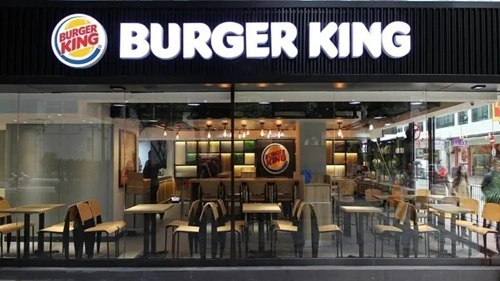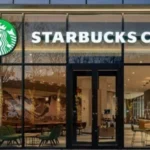India’s quick-service restaurant (QSR) market has been booming, thanks to the increasing urban population, changing food preferences, and a growing appetite for global food brands. Among the top players in this sector is Burger King, a leading global fast-food chain known for its flame-grilled burgers and signature Whopper. With its successful entry into the Indian market, Burger King presents an excellent franchise opportunity for entrepreneurs looking to invest in a high-potential business.
This article explores the Burger King franchise cost in India, including investment breakdown, eligibility requirements, franchise models, profitability, and the step-by-step application process.
Why Invest in a Burger King Franchise in India?
Burger King is the second-largest fast-food hamburger chain in the world, with over 18,000 outlets globally. Since its launch in India in 2014, the brand has gained a significant market share by offering a menu tailored to Indian tastes, including vegetarian options and localized flavors.
Here’s why investing in a Burger King franchise in India makes sound business sense:
1. Rapid Market Expansion: The Indian QSR market is expected to reach ₹82,500 crore by 2025, growing at a CAGR of 18%.
2. Strong Brand Recognition: Burger King’s global brand value ensures customer trust and instant market visibility.
3. Localized Menu: The brand offers India-specific products, catering to vegetarian and non-vegetarian preferences.
4. Operational Support: Franchisees receive extensive training, operational guidance, and marketing assistance from the brand.
5. Proven Business Model: Burger King’s successful track record in India highlights its strong operational efficiency and customer loyalty.
Burger King Franchise Models in India
Burger King offers multiple franchise models to cater to different investment capacities and business goals. The major franchise models are:
1. Traditional Restaurant:
- Full-service outlets located in malls, high streets, or standalone spaces.
- Requires high investment but generates higher returns due to greater footfall.
2. Non-Traditional Locations:
- Outlets in airports, railway stations, food courts, and colleges.
- Lower setup costs with steady customer traffic.
3. Drive-Thru Restaurants:
- Located along highways or in suburban areas to cater to on-the-go customers.
- Increasingly popular due to convenience and fast service.
The choice of franchise model significantly impacts the overall investment required.
Burger King Franchise Cost in India: Detailed Investment Breakdown

The cost of owning a Burger King franchise in India depends on the franchise model, store location, and size. On average, the initial investment ranges between ₹2.5 crore to ₹5 crore. Below is the detailed breakdown:
-
Franchise Fee:
- The one-time franchise fee for a Burger King outlet in India is around ₹50 lakh to ₹60 lakh.
- This fee provides the right to operate under the Burger King brand and access its operational systems.
-
Store Setup and Construction Costs:
- The costs associated with construction, kitchen equipment, interiors, and furnishing typically range from ₹1.5 crore to ₹3 crore, depending on the store size and location.
-
Working Capital:
- Entrepreneurs need to allocate ₹30 lakh to ₹50 lakh for operational expenses such as salaries, utilities, and raw materials.
-
Royalty Fees:
- Burger King charges a royalty fee of 4.5% to 6% of the gross sales.
- This fee covers brand support, operational assistance, and continuous innovation.
-
Marketing and Advertising Expenses:
- Franchisees are expected to contribute 2% to 4% of gross sales towards local and national marketing campaigns.
Eligibility Criteria for Burger King Franchise in India
Burger King follows a rigorous selection process to ensure that its franchisees can uphold the brand’s global standards. The essential eligibility criteria include:
- Financial Capacity:
- The applicant must have a net worth of at least ₹10 crore and demonstrate the ability to invest ₹2.5 crore to ₹5 crore.
- Business Experience:
- Prior experience in the food and beverage or retail industry is preferred but not mandatory.
- Operational Commitment:
- Burger King expects franchisees to be actively involved in the day-to-day operations.
- Location Feasibility:
- The chosen location must meet Burger King’s strategic requirements for accessibility, customer traffic, and market potential.
Steps to Apply for a Burger King Franchise in India
If you meet the eligibility criteria, you can apply for a Burger King franchise by following these steps:
-
Research and Feasibility Study:
- Conduct a detailed analysis of the target market, competition, and customer preferences to determine the most suitable franchise model and location.
-
Submit an Application:
- Prospective franchisees can apply through the official Burger King India website or approach Restaurant Brands Asia (RBA), the master franchisee of Burger King in India.
-
Evaluation and Interview Process:
- The franchisor evaluates the application, financial background, and business acumen. Shortlisted candidates are invited for interviews and presentations.
-
Location Approval:
- The franchisor inspects the proposed location for factors like accessibility, competition, and expected customer traffic.
-
Signing the Franchise Agreement:
- After approval, the franchisee signs a detailed agreement covering operational standards, revenue sharing, and brand compliance.
-
Training and Store Launch:
- Burger King provides comprehensive training programs covering food preparation, customer service, and store management before the store launch.
Profitability and Return on Investment (ROI)
Burger King franchises in India offer attractive returns due to the brand’s growing popularity. Key profitability indicators include:
-
Annual Revenue:
- Successful outlets can generate ₹3 crore to ₹6 crore annually, depending on the store location and customer base.
-
Net Profit Margins:
- Profit margins typically range from 12% to 15%, depending on operational efficiency and sales performance.
-
Break-even Period:
- The average break-even period is 4 to 5 years, depending on store performance and market conditions.
Challenges of Owning a Burger King Franchise in India
While the Burger King franchise offers substantial returns, it also presents certain challenges:
-
High Initial Investment:
- The capital requirement can be a barrier for small investors.
-
Operational Rigor:
- Franchisees must adhere to strict quality, service, and hygiene standards.
-
Competitive Market:
- The QSR market in India is highly competitive, with global brands like McDonald’s, KFC, and Domino’s vying for market share.
Conclusion
Investing in a Burger King franchise in India is a promising opportunity for entrepreneurs with substantial financial resources and a passion for the food and beverage industry. With its strong brand presence, customer-centric approach, and growing demand for global fast-food chains, Burger King offers a sustainable and profitable business model.
However, prospective franchisees must be prepared for the high initial investment, long-term commitment, and operational challenges that come with running a successful QSR outlet. For those ready to take on these responsibilities, a Burger King franchise can lead to long-term profitability and growth in India’s booming fast-food sector.

Shashi Kant is the Founder and Editor of BusinessScroller.com, a leading platform for business insights, finance trends, and industry analysis. With a passion for journalism and expertise in business reporting, he curates well-researched content on market strategies, startups, and corporate success stories. His vision is to provide valuable information that empowers entrepreneurs and professionals. Under his leadership, BusinessScroller.com has grown into a trusted source for in-depth articles, customer care guides, and financial expertise.


